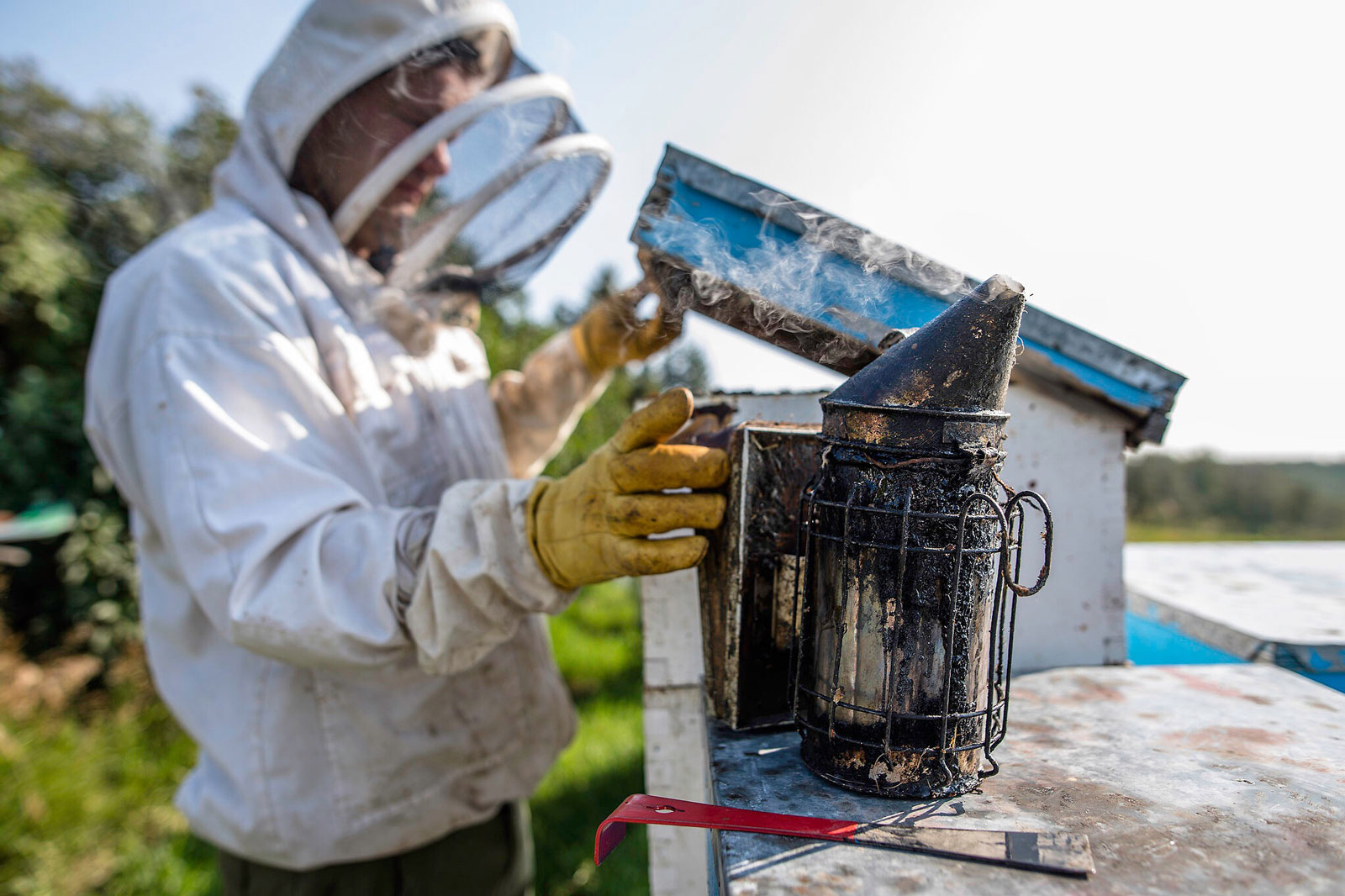In 2011, Richard and Amber Ozero took a major leap. After years of working in Edmonton TV news, the couple decided to make a career change — an unconventional one — and become beekeepers.
It didn’t happen overnight. The pair first moved to an acreage in Parkland County in the mid-2000s, and began caring for a number of animals in the process. Then, when a retiring beekeeper gave them the opportunity to take over 920 hives, they decided to go for it.
“It’s pretty unheard of,” says Richard, who you might remember as a long-time meteorologist and journalist at CTV and Global Edmonton. “It’s like becoming a dairy farmer and not having a dairy background. But, fortunately, from my journalist background, I asked a gazillion questions.”
The Ozeros had a good mentor. The beekeeper they took over the hives from had knowledge from 30 years of experience, which he gladly shared with them.
Despite an unconventional entry into the world of beekeeping, the business took off. The pair quickly launched Good Morning Honey, selling organic, unpasteurized honey, and haven’t looked back. They established partnerships with restaurants and stores in the Edmonton area, and they sell to over 50 countries through Bee Maid, a cooperative of Alberta honey producers. During the pandemic, they also added delivery to the mix.
“Every Friday, we’re delivering honey around the capital region,” Richard says. “People can order online and we bring it right to their doorsteps. We’re also delivering to all the stores and restaurant partners that we have.”
That keeps them busy throughout the winter when their bees require less attention. It turns out, the hardest part of beekeeping from November through March is keeping your hands off the hives. While they’re put on pallets (to help with moving and managing) and wrapped in insulation, the bees are largely left alone until spring.
“We have little pipes that they can exit and enter through. You can stick your ear up to it and hear them buzzing away on the inside, so you know everything is good on that hive. Otherwise, it’s a pretty limited interaction. In the wintertime, they just do their thing,” Richard says.
